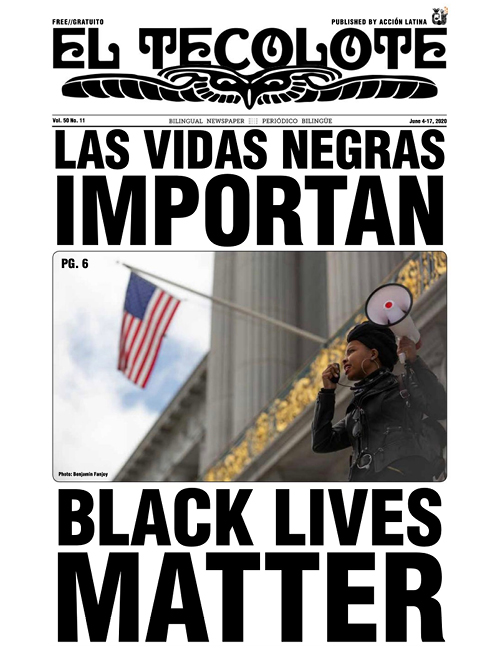LTNS Statement in Solidarity with the Movement for Black Lives
San Francisco State University's Latina/Latino Studies Department stands in solidarity with the Movement for Black Lives.[i] We write this statement in response to the horrific murder of George Floyd. We recognize that white supremacist state violence and anti-blackness has ended the lives of hundreds of others, including Breonna Taylor, Tony McDade, David McAtee, Ahmaud Arbery, Tamir Rice, Eric Garner, Sandra Bland and Michael Brown. We say their names in the Bay Area, where a decade ago BART Police killed Oscar Grant.
We teach in “the City’s University” — located just 18 miles from San Quentin Prison, California’s oldest penitentiary[ii] — a City that has systematically excluded and pushed out its Black population from the 1940s through urban renewal projects and into the 1980s-90s through massive projects of prison construction throughout the state.[iii] The percentage of San Francisco’s African American residents dropped by a fifth from 2000 to 2010 and continued dropping from 9.7% in 2010 to 5.5% in 2018. We hear local and state politicians announce a redirecting of funds from police departments to Black communities, but we needed this reinvestment decades ago. We hope for a deep level of Black community involvement in this redirecting of resources. We call for the inclusion of prison abolition groups that have dedicated decades to reducing our reliance on police in emergency situations and have instead advocated for replacing “prisons, police and all other institutions that inflict violence on Black people” with “institutions that value and affirm the flourishing of Black lives.”[iv]
San Francisco State University prides itself in its commitment to social justice; yet, in Fall 2019, SF State enrolled only 237 Black students as first-time, full-time freshmen. In Fall 2019, SF State hired only one Black tenure-track professor. These numbers raise questions about why so few Black students and faculty call SF State their intellectual home. We call for SF State’s senior leadership to advance the structural and institutional changes necessary for the University to truly be a site of inclusive excellence where Black students, faculty and staff thrive. As faculty of color, we have joined Black faculty in providing the University with countless hours of emotional labor as mentors to students of color, confidants to colleagues of color and members of various diversity and inclusion initiatives. We demand the University’s priorities be radically transformed through a proactive response from the president and administrators to fully commit toward Black success and to live up to the promises made to our academic ancestors.
We are the living legacy of 1968’s Third World Liberation Front — led by Black students and activists and rooted in their shared struggles with other marginalized populations. This year marks the 51st anniversary of the first College of Ethnic Studies in the entire world.[v] We need clear commitment from senior administrators to show institutional compassion for Black students, staff and faculty, and truly live up to President Mahoney’s call to: “engage in critical self-reflection and demonstrate compassion.” Self-reflection and compassion alone will not erase the systematic exclusion of Black scholars, faculty and students in California and San Francisco. We welcome President Mahoney’s invitation to “recognize and challenge power imbalances and inequities.” In solidarity with the liberatory, abolitionist, anti-capitalist Movement for Black Lives, we demand the University to honor the legacy of our College with a clear plan to invest, value and affirm the flourishing of Black lives.

[i] The Movement for Black Lives
[ii] Still Booming: Prisons in California
[iii] Angela Davis. Are Prisons Obsolete? New York: Seven Stories Press, 2003.
[iv] Visit about “Movement for Black Lives” website to learn about the need to enact abolitionist, anti-capitalist, and kinship-centered institutions and ways of being that center Black people - including folks who are trans and queer, women and femmes, currently and formerly incarcerated, immigrants, disabled, working class and poor.
[v] History of Ethnic Studies and African American Studies & San Francisco State Library College Collection on The Strike & San Francisco State College Strike Collection
